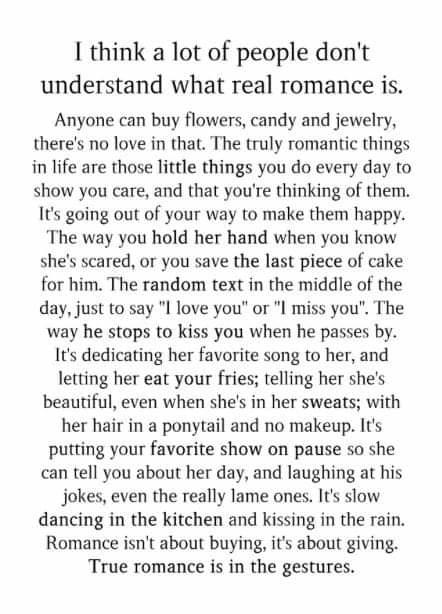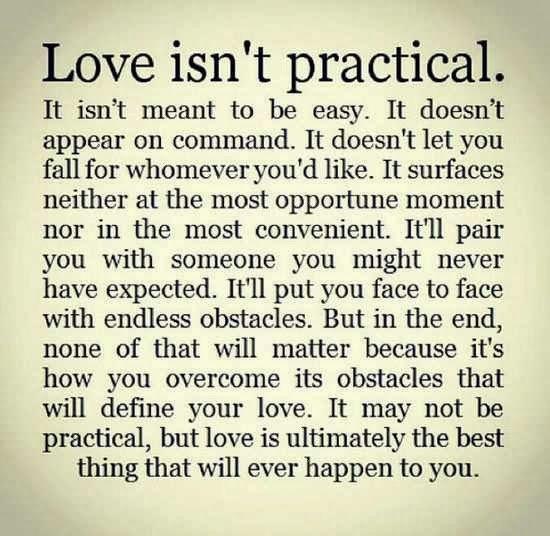In my childhood I remember reading different fairy tales’ books. From the typical prince charming saving a princess, to the bad boy who became a good fella after finding “true love” in a girl. We all as grown up adults (or near to become so) know those are fantasies, however, the conception they promoted stayed in our psyche, and several lives by it, unconsciously. Beside the child stories books you surely notice the same story line in cartons you’ve watched. Of course, there is more into it.
Constantly our family and society tell us, “there is a soulmate for everyone”, “true love comes with patience”. The primal motive of that propaganda is somewhat biological. What it really means, is: “we got to reproduce and grow in number for the sake of genetic variation and the continuation of our species”. It’s also societal. It reminds us that there is a rule to be followed, to guarantee order and well-being in our society, in dependence of a established sexual culture, in which monogamy or polygamy can be prevalent.
As species, our biology and environment (natural & built environment) shapes our individual and group behavior. So, what true love is? If our planet is fill with people who lives in diverse environment’s, in different societies, with different cultures, religions, ideologies, which at the same time form part of our diversified human cosmos, how can we define true love? Should we limit our self to what we have learned from our community? If we go deeper into the subject there is another view that should be embraced. I am referring to “true love” from the male and female mind perspective, within heterosexuality and the LGBT+ community.
Due to the vagueness of “true love” and because of the complexity it holds, it’s really brave to assume it can be easily defined. That assumption let it be terribly misleading. Now, I’ll set a few examples of how “true love” can be misleading in a romantic relationship. With the examples there will be open-ended questions you can answer if you wish.
Ex#1. Raúl met Cloe in New York City. He’s a journalist and a devote catholic from Colombia, and she’s a chef of Japanese descend and a devote Shintoism follower. After a four years relationship they married and they’re currently planning to form a family. While Raúl believes their children should have a roman catholic formation, Cloe thinks it would be better for them to follow her ancestral beliefs.
In your own words, how should true love be applied in this context?
Notice that there is a religious disjunction.
Ex#2. Mark met Samantha in a town, in Iowa state. He’s from Los Angeles, California, she’s a hometown girl. After dating for five months, they decided to make it official. Problems arise when Mark felt he had no sexual life with her (after almost a year), while Samantha thought there was no need to have one, for the moment. A few months before, he knew from her, that she is a virgin (non-religious virgin) and he’s her “first”, and she knew from him that he’s a very sexual person and that he only experienced casual dating’s.
None of them are having physical intimacy and their virtual sex experience turned out to be a disaster. For Samantha virtual sex is unromantic and for Mark it’s a solution to the problem.
In your own words, how should true love be applied in this context?
Notice that there is an ideological disjunction.
Ex#3. Ana met João, in the UK. She is German, he’s Brazilian. Both have years living together in London. They seem to be a happy couple, but Ana is starting to wonder if João constant parties with friends is going to affect their relationship in a future, and João thinks Ana should open up more, be easy-going, instead of intolerant and strict. They’ve talked about it; however, they are still not in the same page, despite their efforts.
In your own words, how should true love be applied in this context?
Notice that there is a cultural disjunction.

 Holidays
Holidays  Girl's Behavior
Girl's Behavior  Guy's Behavior
Guy's Behavior  Flirting
Flirting  Dating
Dating  Relationships
Relationships  Fashion & Beauty
Fashion & Beauty  Health & Fitness
Health & Fitness  Marriage & Weddings
Marriage & Weddings  Shopping & Gifts
Shopping & Gifts  Technology & Internet
Technology & Internet  Break Up & Divorce
Break Up & Divorce  Education & Career
Education & Career  Entertainment & Arts
Entertainment & Arts  Family & Friends
Family & Friends  Food & Beverage
Food & Beverage  Hobbies & Leisure
Hobbies & Leisure  Other
Other  Religion & Spirituality
Religion & Spirituality  Society & Politics
Society & Politics  Sports
Sports  Travel
Travel  Trending & News
Trending & News 

Most Helpful Opinions